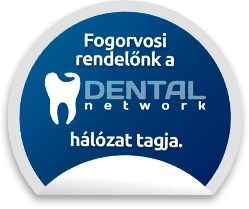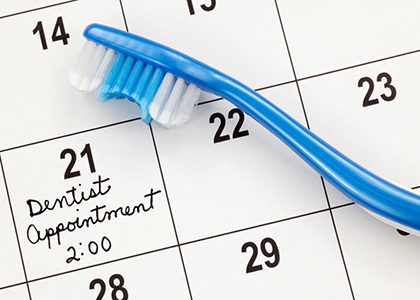Dental Cyst
Among dental problems, a dental cyst is an anomaly that often goes unnoticed until it causes more serious symptoms. Although cysts often grow slowly, they can lead to severe consequences if not appropriately treated.
A dental cyst is a cavity filled with fluid or semi-solid material that forms inside the teeth or surrounding tissues. These cysts mostly grow slowly and are often only discovered during X-ray examinations, as they can be symptom-free for a long time. There are various types of dental cysts, depending on where they form and what causes them. The most common types include radicular cysts at the root of the tooth, gingival cysts, and cysts that develop on the tooth.
Tooth Cyst
A cyst on the tooth typically develops due to anomalies in the development of enamel or dentin. This type of cyst often occurs with wisdom teeth when they cannot properly break through the gum or if the tooth has been traumatized. The cyst is located in or near the tooth and, if not treated in time, can lead to further complications, such as displacement of surrounding teeth or infection.
Gingival Cyst
A gingival cyst is a common dental condition that forms within the gum tissue. This type of cyst usually appears as a small, painless bump on the gums, often causing only cosmetic concerns for patients. However, the size and location of gingival cysts can vary, and over time they can significantly impact oral health, especially if not treated promptly.
Causes of Gingival Cyst
There are several causes for the formation of gingival cysts. These cysts can be congenital, present at birth due to anomalies in the development of gum tissues. However, most gingival cysts are acquired, developing over time due to various factors. Often, injuries to the gums, such as those from rough tooth brushing or trauma caused by sharp foods, can lead to cyst formation. In addition, inflammation of the gums, often caused by oral bacteria, can also contribute to cyst development.
Gingival cysts can also occur as a result of an existing infection, allowing the cyst to form and fill with fluid. If the cyst is not treated timely, the infection can spread, leading to more severe complications, such as tooth loss or damage to adjacent tissues.
Radicular Cyst
The radicular cyst is the most common type of dental cyst, forming at the root tip of a tooth, often around a dead or severely infected tooth. These cysts typically grow slowly but can cause significant dental and general health issues if left untreated.
Causes of Radicular Cyst
A radicular cyst most commonly forms when a tooth dies or becomes severely infected, and the infection spreads to the root tip. This infection causes inflammation around the root, which can lead to cystic changes. The fluid inside the cyst gradually accumulates, causing the cyst to grow.
Radicular cysts often remain symptom-free for a long time, as they grow slowly and initially do not cause significant pain or discomfort. However, as the cyst enlarges, it can exert increasing pressure on surrounding tissues and teeth, causing pain, swelling, and even damage to the jawbone.
Effects of Dental Cyst on the Body
If left untreated, a dental cyst can cause numerous serious health issues that can significantly affect not only oral health but also overall body health. Dental cysts can grow slowly but continuously, leading to severe complications over time if not properly treated.
Pressure and Displacement on Surrounding Teeth
As a dental cyst grows, it can exert pressure on surrounding teeth and tissues. This pressure can eventually lead to displacement or crowding among the teeth. The cysts can alter the position of teeth, causing bite irregularities and cosmetic problems. Displaced teeth not only affect the appearance of the smile but can also impact chewing functions, potentially leading to overuse and pain in the jaw joints.
The displacement of teeth can often cause tooth sensitivity, especially when consuming cold, hot, or acidic foods and drinks. This increased sensitivity can cause significant discomfort and negatively affect daily life quality. Additionally, crowded teeth are harder to clean, increasing the risk of tooth decay and gum diseases.
Infection Spread to Adjacent Tissues and Bones
The interior of dental cysts often harbors infections that initially remain confined to the cyst area. However, if the infection is not promptly treated, it can spread to adjacent tissues, including the gums, bones, and other parts of the oral cavity. The spread of infection can cause severe inflammation that not only damages oral tissues but can also affect the jawbone.
Inflammation and bone loss in the jawbone (osteomyelitis) can lead to tooth loss and weakening of the jaw structure. Bone loss can deform the jaw, causing severe functional issues, such as restricted movement of the jaw and damage to the jaw joints. Such complications require long-term treatment and rehabilitation, including surgical interventions.
General Health Problems
If the infection in a dental cyst spreads further, it can affect neighboring organs and lead to general health issues. The infection can enter the bloodstream, causing systemic inflammation and sepsis, a life-threatening condition. Additionally, the infection can spread to other organs, such as the lungs, heart, or brain, causing further serious diseases.
In addition to systemic infections, the inflammation caused by dental cysts can lead to fever, swelling, and general malaise. Patients often experience constant, throbbing pain in the affected area, which can be accompanied by swelling in the face and neck. These symptoms significantly degrade life quality and require urgent medical intervention.
Treatment of Cystic Tooth
The treatment of a cystic tooth fundamentally depends on the type of cyst, its size, and its location, aiming always to completely remove the cyst and eliminate the infection. During treatment, it's also important to consider the extent of damage caused by the cyst to prevent further complications and preserve the patient's oral health.
Surgical Removal
Treatment of dental cysts often requires surgical intervention, especially if the cyst has reached a significant size or if conservative treatment methods have proven ineffective. During the surgical removal, the dentist or oral surgeon opens the affected area and removes the cyst along with surrounding tissues. This procedure ensures that the cyst is completely removed and the infection is eradicated, preventing the cyst from reoccurring.
Bone grafting materials can also be used during surgery, especially if the cyst has caused significant bone loss. Bone grafting helps regenerate tissues and restore the structure of the jawbone. The healing process requires regular monitoring to ensure the success of the intervention and prevent complications.
Root Canal Treatment
If the cyst is located around the root of a tooth, root canal treatment can be an effective solution to eliminate the infection and treat the cyst. During root canal treatment, the dentist removes the infected or dead pulp, cleans the tooth canals, and then disinfects the area. Afterward, the canals are filled with a special material that seals the tooth, preventing reinfection.
The aim of root canal treatment is to save the tooth, and in many cases, it can successfully prevent cyst growth and further complications. If the cyst is too large or the infection too severe, root canal treatment alone may not be sufficient, and additional surgical intervention may be necessary.
Tooth Extraction
If the cyst has severely damaged the tooth and other treatment methods, such as root canal treatment, prove ineffective, tooth extraction may be unavoidable. This is especially necessary if the cyst has caused damage to an extent that tooth restoration is no longer possible or if the tissues around the cyst are severely infected.
During tooth extraction, the cyst is also removed to ensure the complete eradication of the infection. Bone grafting materials are often used after the procedure to restore the affected area, especially if the extraction has resulted in significant bone loss. Bone grafting aids in wound healing and ensures the possibility of tooth replacement (such as an implant or bridge) later.
Although tooth extraction is often inevitable, it does not necessarily provide a permanent solution. Regular dental check-ups are important after the procedure to ensure proper healing and prevent reinfection.
Home Treatment for Dental Cyst
While the treatment of dental cysts is fundamentally a professional's responsibility, some home methods can help alleviate symptoms and prevent the spread of infection. However, it's important to note that home treatment options are supplementary and do not replace professional dental care.
Salt Water Rinses
Salt water rinses are one of the most widespread home methods for disinfecting the oral cavity and reducing inflammation. Salt water helps remove bacteria that can contribute to infection and reduces swelling. Applying salt water rinses several times a day can alleviate pain and help maintain oral hygiene.
Mouthwashes and Pain Relievers
Mouthwashes containing antibacterial ingredients can also be effective in keeping the oral cavity clean and preventing infections. Additionally, over-the-counter pain relievers, such as ibuprofen or paracetamol, can help relieve pain caused by the cyst.
Cold Compresses
If a cyst causes swelling and pain, applying a cold compress can help reduce these symptoms. Cold compresses can help reduce inflammation and relieve pain.
While these home methods can help temporarily relieve symptoms, it is essential to consult a dentist if you suspect a dental cyst. Professional treatment of cysts is crucial for eliminating the infection and avoiding complications. Home treatment cannot eliminate the cyst, and if left untreated, it can lead to severe health issues.
Protect your teeth and health – Start cystic tooth treatment at Fehérvári Dental! Do not let cystic teeth remain untreated and cause more serious health problems! At Fehérvári Dental, our experts provide a comprehensive examination and personalized treatment plan to help you get rid of the cyst, preserving your teeth's health and restoring your oral cavity's harmony. Whether it involves root canal treatment, surgical intervention, or other dental solutions, you are in safe hands with us. Do not wait any longer – book an appointment today to regain your pain-free.




















